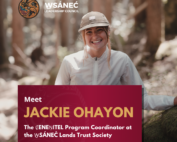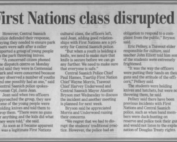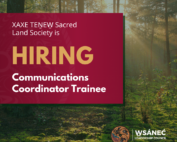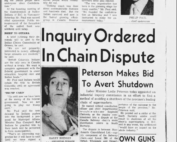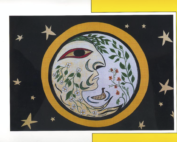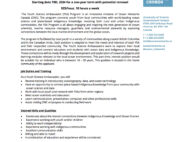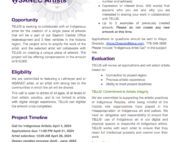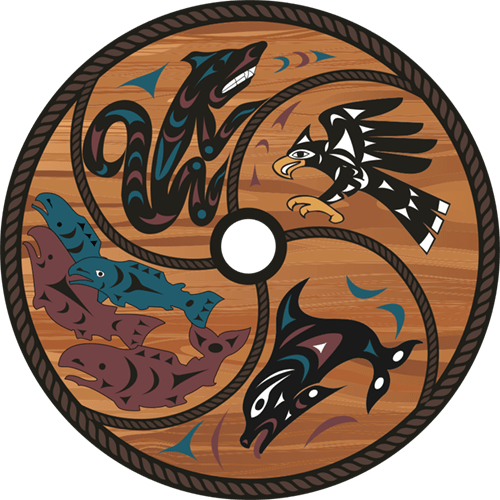Truth & Reconciliation Day from a W̱SÁNEĆ perspective
On Truth and Reconciliation Day, we are featuring the perspectives of members of our W̱SÁNEĆ community. We asked, what does the day mean to you, and how are you spending the day.
Special thanks to Dave Paul, ESKISELWET / Tracy Underwood, Carolyn Sampson, Edna Ellsworth, and Kusemaat – Shirley Williams for sharing their stories.
Interviewer, What does Truth & Reconciliation Day mean to you?
Kusemaat – Shirley Williams:
Truth and Reconciliation Day means remembering our ancestors and all life of Mother Earth every day and taking action to ensure thriving culture and environment for future generations.
There are many root causes of trauma to our Indigenous peoples and Nature since colonization, including the theft of our homelands, way of life, children, language, kinship systems, and natural laws. I have heard elders say, “Truth and Reconciliation is good, but we are still not the decision makers.” “Truth and Reconciliation is good, but we can never truly reconcile until we reconcile with our own people.” I have witnessed how the Canadian Truth and Reconciliation forces people to finally learn about the genocide of the Indigenous peoples.
I believe that if the Saltwater Salmon People can align with Truth and Reconciliation (and UNDRIP) in Washington State/US and Canada, we can utilize the instruments for the common good.
Interviewer: How will you spend the day?
Kusemaat – Shirley Williams:
I will spend the day like I do every day, trying to plant a seed to restore our village sites, camps, reef net locations and 13 moon food sovereignty to the once shared homelands, so our future generations can be present, practice and protect our inalienable inherent rights and treaty rights “to fish as formerly” “in our usual and accustom fishing stations.” If the First Peoples want this it is possible. If Walt Disney can create Disneyland then why can’t the First People have their village sites, camps, reef net locations and 13 moon food sovereignty back. That would be reconcili-action.
Through an educational system we can occupy territory and teach our next generations based on natural laws, siam – one who gives the most, potlatch – gift of giving, reef net – peace, unity, balance, sustainability, male and female balance, sharing our natural wealth once again.
——
Interviewer: What does Truth & Reconciliation Day mean to you?

Carolyn Sampson:
For me, Truth & Reconciliation Day is an acknowledgment. What has happened in Canadian history to Indigenous people is being acknowledged; there’s no denying it anymore.
I am seeing those who want to walk with us and those who want to engage with us walking with us in a different way and I think it’s amazing.
I remember, in 2021 when the 215 children’s bodies were revealed in Kamloops. I remember driving down my road, as I live off reserve right now, I saw all the people who had orange in their windows, the buses hanging orange reflective tape off their windows, and the people who were wearing orange with intention.
Although there have been various reports, through the years, such as, the Report of the Royal Commission on Aboriginals Day, the Truth and Reconciliation Reports, and the report on Missing and Murdered Indigenous Women. While people acknowledged these reports, when the news about the children’s bodies at the Kamloops Residential School came out in the National media, it hit in a different way and I started to see the non-Indigenous community walking with us in a different way.
I am a Day School survivor and I will not forget coming home on the day the children’s bodies became a news item, I got home at the same time as a neighbour, I’d never met before that day, she was wearing this beautiful, orange flowered dress and when I asked her “Are you wearing that with intent today?” she looked at me with tears in her eyes and said ‘Yes, I am.’” I was awed and humbled by it.
In 2021 people are in a different place with Truth and Reconciliation. The Victoria Orange Day Shirt event, the City of Victoria hosts with Eddy Charlie and Kristin Spray taking the lead; the two are the originators of the event and they both have worked tirelessly over the past decade.
People are listening differently and understanding differently and they are empathic because they have children and grandchildren and it’s unfathomable to send your child to school and they don’t come home.
In 2022, there is no denying Indigenous history because of the burial remains of the 215 children found in Kamloops and now the other schools and hospitals are beginning their work and are finding more children. On Vancouver Island, we had five residential schools plus the old Indian hospital in Nanaimo, which was the decommissioned army base, that became one of the segregated Indian TB hospitals.
Because of all of this (residential schools, Indian Day schools, Indian hospitals, 60’s scoop, etc.), the community (non-Indigenous and Indigenous) embrace Truth and Reconciliation differently. I want to walk with those who embrace National Truth and Reconciliation Day.
For me, Truth and Reconciliation Day is about Canada truly acknowledging the history of Indigenous People in Canada in a way that has never been done before.
Interviewer: How are you spending the day?
Carolyn Sampson:
I’ll go to the two events in Victoria. My Dad is one of the speakers at the Victoria Orange Shirt Day event. It’s a shame both events start at the same time as we will miss the beginning of the event at Royal Athletic Park, but we will go to the powwow after.
I am glad there are events available so we can stand together as people and that those – non-Indigenous can be with us too. It’s intergenerational healing for humanity to stand together, to stand together as human beings.
I am looking forward to tomorrow. I get to see people I don’t always get to see – we always connect at events like this and it’s nice there are public events we can go to together.
—–
Interviewer: What does Truth & Reconciliation Day mean to you?
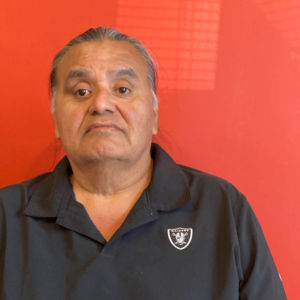
Dave Paul:
I like the idea of reconciliation day, but I’d like it better if we’d had more input as to when it was going to be. I think this day should have been at the start of the school year. It would be more meaningful and have a greater impact that way.
I’ve heard so many stories in my life about when children were taken. My wife and I still joke about when there’s a white van that comes by we say ‘Oh no, the van is coming, hide!’
A young man shared a story that really resonated with me.
He shared with a group of us that he didn’t really know if he had the right to call himself Indigenous or Aboriginal because of an incident that happened when he was younger when he visited his family on reserve, which they used to do every summer. The kids were all playing together when one of them saw a bus coming to take them to school and yelled Run! and they all ran into the bush and hid out terrified that they were going to be taken away, until 11pm at night when they finally came home.
His mom was crying, she was so upset that he had been taken, and instead of getting upset at the people who took children, she took it out on her relatives. From that day forward they didn’t visit the reserve. When he would go back in his twenties his mom would get upset. She made him and his brother cover-up in the summer so they wouldn’t get tanned and look indigenous. He had no contact with his family or culture after that. His mom was one of the last fluent speakers in their community but she refused to teach children any of their language. He said, as a result, “I didn’t know my culture, I didn’t know my people, I didn’t know my family. I didn’t know my mom spoke fluent Cree. I didn’t know any of this. So I don’t know if I have the right to call myself aboriginal or an Indian, whatever we are. I don’t know if I had the right.” An elder who was present when that young man told his story told him “Grandson, never believe you’re not one of us”
That’s the story I think about when I think of our people,
My mom is a survivor of residential school. My grandmother on my father’s side was a survivor of residential school. They never talked about her experiences, never talked about the things that happened.
There are people who 25 years ago hated their experiences but now as they age, they say, ‘Oh I guess it wasn’t that bad’. They’re just trying to make themselves feel better about what happened at the residential school. They can’t really deal with it. You know, me and my siblings all went to the day school. So we have horrific stories of the abuses that we suffered. The only difference is we got to go home at the end of the day. And to this day, I hate mornings. I’ve always hated mornings because we had to start school at 8:30 and we dreaded going to school.
Because of that experience, when we moved to the public school system, we were always so far behind and that was significant. We had to study harder to keep up and when I got to high school, no one believed me when I said I wanted to go to University. My guidance counselor and my homeroom teacher, said ‘Oh you should go take cooking and woodwork and auto mechanics because that’s where all your cousins are going to be’. I got laughed at because I wanted to attend University. They had no respect and didn’t believe I could do anything such as attend university but I graduated in December of 1987 with a degree in criminology. In 1987 I was one of the first four University graduates in my community and there have been numerous graduates since.
After graduation, I spent years as a parole officer in corrections where I experienced two decades of racism. The stories I could share are crazy. I never ever really felt part of a team. It was an us versus them mentality.
When I started my career in corrections, I was one of two Indigenous parol officers in BC, at times I was the only parole officer in BC. There were probably less than 12 in Canada.
Back then I used to dress really sharp, a sports jacket, ironed shirt, and shined shoes, and I still got mistaken for an inmate and targeted for physical searches. I got called every name in the book because I am Indigenous. So how do you deal with that? How do you deal with people every day not thinking I’m a parole officer, just because I’m First Nations, thinking the only reason I’m there is that I’m an inmate?
Indians Need Not Apply
In my dad’s era they literally had signs that said, no natives or no Indians need to apply. It’s important for people to realize it’s only been 70 or 60 years since that happened.
And when we did get hired we’d get treated badly, paid slave wages and have to fight for our pay. We’d watch white people get hired off the street and get paid more than $2 an hour than experienced First Nations people. We were all into farming in the fifties and sixties, but we got away from it because of that very reason.
My dad beat up the owner of one of the farms because he withheld his pay for a month. He had a baby on the way and bills and he had to get in a fight to get the money he earned. begging for money that in advance, this is money I’ve earned’. That day he advocated for others who also had their pay withheld and one of my cousins still shares that my dad was his hero for that.
It’s a day to really reflect on your personal life experiences, to reflect on what happened to your parents, your siblings, and your cousins.
I’m one of those people when you look at me, you can’t mistake me for anything else, but being a First Nations person.
I’ve never had the ability to pass (for white). I’ve never had the ability to blend in as a person among people. That is the first thing you see when you see me is I’m First Nation and I’ve developed the attitude that I don’t care what you think of me but I’m proud to be First Nation.
I’m proud that I’ve accomplished the things I have in my lifetime and the work that I’ve done, it’s mattered. And for other people that don’t believe I’ve done that, that’s on them. You know, it took me a long time to realize that systemic racism and lateral violence say more about that person than it does about you.
We have my late father and two of his brothers who grew up entirely in our community and the rest of them didn’t come home and we have to live with that. It wasn’t that they didn’t want to come home, they learned that to be successful they had to walk away from the culture and embrace the colonial way of life. This was learned from the residential school experience. They learned to be reluctant to be involved with our people.
Interviewer: What are you going to do on the day?
Dave Paul:
On September 30th this year, my son is going to be the head male dancer for the Powwow and my first cousin is going to be the head female dancer. We’ll be there supporting them the entire day. That’s one thing that we’ve learned, we have to support one another in order to be a strong community. Whether it’s your First Nations community, your family, or Indigenous people as a whole.
—-
Interviewer: What does Truth & Reconciliation Day Mean to you?
Edna Ellsworth:
To me, Reconciliation Day is a day of healing, and it is a day that is incredibly important to Indigenous peoples and Canada overall because it is a day that we recognize the horrific past that is Canada, and it’s a day that we take time to promote indigenous healing for those that have been impacted by the traumas that have come from our history and from the intergenerational traumas.
Interviewer: How will you spend the day?
Edna Ellsworth:
Personally, I think I’m gonna take the day to obviously wear orange and to use my own resources and my own outlets to educate others on what the significance of Truth and Reconciliation Day really is, and to open my heart to those that are healing and to maybe help them along the way as best I can.
Taking today as just a time to realize that history isn’t the only day to let that happen and that it’s an ongoing process and that Truth and Reconciliation Day is not the only day for that to take place, and that to heal from the traumas and Canada’s history, it does take a lot of effort, and it takes a lot of work, and it takes a lot of time. And it will take a lot of strength. And I think in a time like this, we have to help each other and lift each other up and really take care of each other.
Watch Edna’s Interview here:
Interviewer: What does Truth & Reconciliation Day mean to you?
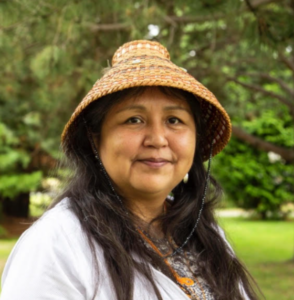
Tracy Underwood:
It started off with Orange Shirt Day at UVic about 6 years ago…and it’s been a roller coaster of a ride, actually. Knowing that my dad went to Kamloops and Kuper residential schools – plural – that it is really hard to engage in these days.
At first, I felt obligated to attend because he couldn’t and but at the same time it was wearing on me. It was very hard to act like I’m strong. When people are telling their stories and especially after the 215 children were found I found myself protecting my heart, protecting my soul. If I were to guide my children now I would say it’s individual, because they didn’t get to know their grandfather. He never met his grandchildren. So it’s individual, how to we all navigate the day.
I think the Queen’s passing is timely after the discovery of children’s bones at their residential schools. Settlers don’t understand our perspective of the passing of a person who is involved in the various levels the crowns plan to genocide our people.
My dad, going to those two residential schools, heard that the Queen was coming from Sidney Airport to Butchart Gardens, and through that, she’d be driving down West Saanich Road to Tsartlip. Him and his brother blockaded the road and said that she’s not welcome to come through our reservation because she’s the one who caused lots of harm to our people. And they won. My dad used to tell me the story as a kid that they managed to get the Queen to reroute from the airport to Buchart Gardens in the 60s before I was born.
Well, the story doesn’t end there. My son in grade four was selected to give the Queen flowers when she got off the her airplane in Sidney. And when I got the invitation, I kinda was gonna crumple it up thought someone else can do it. My dad would be so upset with me if if I let my son do this when they blockaded her from coming our way. But I looked at my son, and I said ‘Who better than my cute little indigenous boy, who is a depiction of showing her that we’re still here?’ I wanted to show her that we’re still here and who better than my son who we put a Cowichan knit vest on and cedar headband on and we wrote back and told them ‘Yep, my son will do it.’ Well, within a week we get a letter in the mail saying the protocols of what my son can and can’t do in front of the Queen. I was like, ‘What the..?” and I wanted to rip that up and I wanted to write back what she can and can’t do in front of my little prince who is the depiction of the indigenous. I was livid. I was just shaking my head like, this is just wrong. Like he can’t talk to her first and he can’t reach out and touch her and all this stuff.
I was wanting to back out and wanted to rethink everything about it, and I took a deep breath and said okay, ‘Who better than my cute little indigenous boy to give her flowers? So he did, along with one of his classmates. She was dressed in a shawl and a headband. And their names were in the paper forever. Brett Wilson and Cecilia Elliott gave flowers to the Queen on this day. And their photo was on the front page of The Times Colonist. And if you Googled him, for years, Brett Wilson giving flowers to the Queen was at the top. And that wasn’t the reason why we did it. We just wanted to show her that we’re still here. So I used to tell this story, for quite a while, and then upon the Queen’s death, my oldest son said, ‘hey, hey, brother, you’re safe now.’ Because him and his sisters were thinking that their brother was going to be taken by the Queen. So it’s dark. It’s kind of a dark sense of humor and it aligns with me because I just thought it was hilarious. But um, a very valid thought, it is possible.
That’s my Queen story. It’s not bashing her, but it’s also not giving her the royal tears that people think we should have. But as far as the day, The Reconciliation Day, I’m actually glad that we have one. I mean, it acknowledges that people who have passed who should have still been with us, not only those who went to residential school. You know, because residential school didn’t kill my dad, but it still killed him. It was still the reason why he died.
I also think that the genocide is more than the residential school like in my presentation that recently I’ve been sharing the land acknowledgment for Indigenous Studies at UVIC. And it’s such a good land acknowledgment that if we had that land acknowledgment 500 years ago before contact, we wouldn’t have lost as many people as we did. If that understanding of the indigenous people of the land. And was there I actually can read it for you:
The University of Victoria is situated on the unceded territory of the lək̓ʷəŋən peoples. This is their land and this is a reality, that all of us who have come here must acknowledge. We must also recognize how our presence here interrupts ancient ways of being in this world. We all have a responsibility to prevent further intrusion into lək̓ʷəŋən and W̱SÁNEĆ lives and if called upon to support expressions of the lək̓ʷəŋən and W̱SÁNEĆ nationhood. We must also recognize that we are living on someone’s land spread across Greater Victoria are on the hunting and fishing grounds, village sites, and ceremonial places of the Salish people. And we must acknowledge how our presence here can either disrupt or repair the relationship between the original people and their land.
So I’m teaching Indigenous Studies now. I’m still a student, but I got my (PhD) candidacy in July 2022. As of September 1, I have two Indigenous Studies 101 that I’m teaching and it’s been really good; eye opening and at the same time amazing. To see what the youth young students are learning and willing to learn. To see the eyes change and go ‘I get that, I understand that’ or the work they’ve already been doing on saying ‘I’m a settler and with that, I know the privilege I hold’
In my (PhD) presentation I talk about reconciliation being such a long line that we don’t even know when we’re gonna get there. Considering the 500 years it took us to get where we are now. That I look for the droplets of hope that show, my children might see it, but even then they may not. So that’s why rebuilding and rebuilding it our way makes more sense. So, people I’ve been presenting to say rebuilding makes so much more sense in that, like, I don’t eliminate reconciliation altogether. There are times I use it but I more especially with our people; we’re going to rebuild and we’re going to rebuild it our way.
I think reconciliation is for the settler to understand more than us because I see when I hear and see the youth reconcile and say, like that land acknowledgment – that I acknowledged that this is your land. That’s huge. That’s huge.
Because the Langford businessman, don’t think that they all just come in and destroy to make the money. Take the water, you know, they build big apartment buildings. Even if there’s 100 units, everyone needs a toilet to flush. And as a matriarch every time they flush the toilet then wash their hands. That’s our water they’re using.
This past lacrosse season, my son’s teammates’ mom is part of the Islands Trust and she said to me, ‘To be honest, Tracy I am concerned. And she said I need to tell you honestly that the Canadian government is selling water to the residents of Salt Spring and the very rich will get all this water and I’m worried when the indigenous people get there – will they have water?’ That’s a very small indicator or I think a warning to the whole island. Because Saltspring is an island that will run out of water. Vancouver Island is an island that could run out of water. Yeah. And I don’t think these businessmen get it. And as the matriarch, I have to be the one to tell them to keep telling the message that even within my own community, we got a whole new campground shaved out a forest, shaved out a swamp, put in over 100 trailers, campers to live and there are people living there. They don’t have any plans of going anywhere. And they get homes before our own people. And they’re using sewer. So as a matriarch, I told them that we want to sign a paper that we’re not giving any more water and sewer to settlers. Before our people because their housing list is over 100 and some housing had a meeting and he faced he’s at Ground Zero trying to hear all those stories. He wants to balance it between taking action and building houses. But we’re still at the place where two of my children are homeless. They’re not on the streets sleeping on the streets, but they’re crowded out my mom’s, considered homeless. Mine and Romaine’s oldest daughter she’s tried to stay in an apartment in town. And she ended up coming home because of the high rent rate. And that’s the story of a lot of our people and these campers, camping on another CP landowner. Leasing our lands, though, doesn’t help the rest of the community. The Indian Act is still in action.
They are humans living in a third-world condition on First Nations land. So those white people who can pay trailer pads and for them and give them money have water certainly hydro over our own First Nation. So I just really feel that it’s inhumane to let any human no matter how you feel about them to be living in these streets. This is they’re no different than the street people in Victoria. To be living in that condition and allowing it to happen in our own community. It just doesn’t make sense. We’re going backwards. We’re going backwards.
Thank you. Yeah, that’s been quite the journey even just to get where I’m at alone. A friend of mine described it well. That the systemic harm and lateral violence that I experienced at UVIC. A friend of mine said, and we both had the same experience, but it’s happened to me again, where it feels like our Creator reaches down in the back of our neck, picks us up like a kitten, and moves us to a safe place. And I’m just now going through it again with human and resources at UVic and a threat of arbitration and grievances and all this policy and procedure systemic stuff. If I wasn’t in Indigenous Studies teaching, the harm would have been probably evident in everything about me, the harm they caused me and I feel very fortunate that Indigenous Studies appreciates me and values me as a local indigenous matriarch and my work. I explained my PhD and they all got it and went ‘That’s amazing’. They can’t wait to see my final work. And the work I’m doing for my PhD that the previous department I was with couldn’t understand and instead rolled me through a rock shaper thing that didn’t feel very comfortable. And so even though I can stand strong and share a lot of people feel I have a lot of reason to hibernate and break down. Yeah, like and that’s just the nature of having a parent and grandparents who went to residential schools, having eight children, living on reserve being an indigenous woman. A lot of what I learned and go through isn’t because life’s been easy for me.
I was amazed when I got to Indigenous Studies, they sent me two templates for Indigenous Studies 101 and one of them quoted me and I was like, ‘Oh, hey, look’. They appreciate me.
We value our men. Matriarch doesn’t mean that we hate men. We value our men and actually, one of our matriarchs was writing a paper on the displacement of men’s roles on contact, which is huge. I see it in my son. Why are young men feeling devalued? Because what they used to do is now being replaced by a uniform or some kind of nine to five, which goes against everything our men used to do to be a part of our system. My brother is one of them and he has his values, even though he didn’t complete high school or go to higher education, he’s in a place more valuable than mine. I trust him with my sons to teach them because what he does is so valuable.
You need something from the land he can get it you need something from the water, he can get it. You need something from the trees and forests, he can get it, which is something that we lost.
So his work is valuable. Yeah. So I say that because I did try out for Chief and Council last round, and it really opened me to ‘Why did I do that?’ I had some friends who said oh, we want to nominate you. And I said ‘Oh well if it happens, it happens if it doesn’t, it doesn’t. But through the process, I asked myself ‘Why did I put myself through that Indian Act? That Colonial, harmful process. Why did I do that to myself? Oh, I should never do that again’. But it also made me rethink those roles of the people who get in and how serious they are at the job where attaining higher education could be a goal that really helps our people . And I don’t want to judge that they have to but at the same time through my education, I have luckily been able to connect myself to the land, language, and culture which claiming my matriarchy only made sense.
So recently I had to do some harm reduction at UVic where I got a big letter that was written to all of the whole department and said that and that was two white women said they were going to indigenize and are want to work on indigenization. And this is how it said how they’re letting go of me, and that they’re going to hire a director. And this is a plan forward. And then I told them that white women cannot write about indigenizing and indigenization. That’s not their place. So retract, lead or take it out. Then I asked I also called upon those who did harm to not put a land acknowledgment under their name when they do a signature. Not like not a land acknowledgment and public. If the time comes, get someone who really means it. Because if you’re going to do harm to local Indigenous people you can’t be going around saying a land acknowledgment. I then showed them what a real land acknowledgment looks like, I told them that there’s Indigenous Studies land acknowledgment difference, because it’s created by Indgenous people who are visitors to this area as well and are not local Indigenous.
By stepping forward, I’ve been claiming strength, it’s been quite a journey to a friend of mine, who I ran this by, she was saying, ‘Tracy, do you think you should talk to a Chief and Council about making this request for them not to do a land acknowledgment?’ And I said, ‘No, that’s a government-imposed Indian Act system that even if I talk to them, I don’t even know if they would do anything. Plus, I’m gonna do it I’m gonna make because I’ve ever right as a matriarch to make this requests of them who’ve done harm’. So she goes, ‘Oh, I get it. It’s more of a spiritual request, then then you know, policy and procedure systemic request,’ because her question was, ‘If you’re going to make that request, how are you going to make sure they do it? How is it going to be assured that they’re going to be doing it?’ My answer is ‘By me asking. That’s it. I don’t need to go to their emails or to their meetings. It’s just by their own conscious by being asked by a local matriarch to not do it that they’ll have just do it.’
I also got advice from another local Matriarch about it all. I read the letter to her and I told her about the whole situation and she gave me great advice. ‘She says you’re going to be working at UVic?’. And I said, ‘Yeah’ and she said, ‘Well take out those woman’s names, all settlers need to know this. And I said, ‘Okay, well, Oh, okay. And I thanked her for every little thing she’d done for me. And I went home, and I took out their names and it still flowed and made sense. So I was thankful that I reached out for help in it. And I told her if things go further now, I’m hoping I had one meeting and that they didn’t call arbitration yet, but they’re hoping that the harm they did that they will just compensate me for the harm they caused. But yeah, it’s been a grueling process – another place and space where not only Indigenous people but women specifically, are not understood in those systems.
I’m lucky to have indigenous professors support me a lot. And not only indigenous, but a lot of faculty and staff wrote them and said that this is wrong. And one, in particular, was the Dean of nursing who realized by my contributions in nursing, that decision sabotaged all their work.
How are you spending the day?
What I found with the day a reconciliation to preserve my soul my heart, my mind, ease my mind has been just the stay at home lately, that those who need to really come to terms with truth and reconciliation can. It’s a day for the settlers to do the work they need to do.
Maybe one day I might like the first July 1, so the 215 were found that’s when I’ve done my presentation on a legislature lawn for over 1000 people. Maybe I might be able to do that again, but for now, for me and our family, we have been just treating it like an extra long weekend where we can relax and be home, maybe one day leave town or something, but at this time, it’s been a day to just be clear, be ourselves and not go out.
I found that if I was out and about I would hear one story and it would send me off about my dad and take the rest of the day for me to work on it. After awhile it felt self inflicted so it was safer to be home in our bubble, and be with each other. My kids are the ones who also do it instinctively. Every day is orange shirt day for us. So I wear my orange necklace every day, my crown every day. Like I have to do these things to be in this world. Because it’s not you know, the easiest. Yeah, they’re just things I have to do to warrior on. Like so. And it’s through my own kids that I went yeah, yeah, wear your orange shirt any day. It’s not just orange shirt days. So it’s awesome to see. And my husband’s dad, he’s he went to residential school, told his story at UVic and he wears an orange shirt every day any day.


